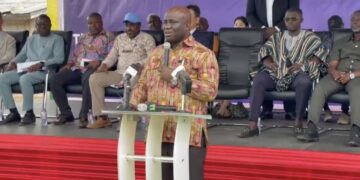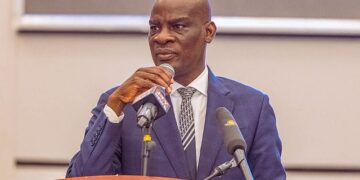[ad_1]

Grace Ayensu-Danquah writes: Lifting lockdown does not mean we should lift vigilance
President Nana Akufo-Addo’s decision to lift a stay-at-home order in Greater Accra, Greater Kumasi and Tema at a time when transmission of the coronavirus has not been controlled has surprised many Ghanaians. These major cities were placed under a three-week lockdown to prevent the spread of the coronavirus. But while the nation lifts its lockdown, we cannot lift our vigilance.
As of April 19, 2020, the day of the President’s announcement, total tested cases were 68,591. Out of this number, total negative cases were 67,549 (98.5%); total positive cases were 1042 (1.5%); recovered cases were 99 (9.5%) and total deaths stood at 9 (0.9%), according to Ghana Health Service data. The government has cited the impact on the poor and mass testing improvements as a major factor in its decision.
It may be indeed true that our economy, dominated by informal sector workers, cannot sustain the same lockdown procedures as the West. Many medium, small and micro enterprises (MSMEs), which occupy a dominant role in Ghana’s economic life (constituting 99.8% of enterprises in Ghana), have taken a serious hit as a result of the lockdown and its associated financial constraints. Unlike the middle class, many poor and vulnerable people have struggled to feed their families these past three weeks while the stay-at-home order remained in force. Thus, it is no surprise that low-income earners and many vulnerable people in Ghana have welcomed the President’s decision. Some even took to the streets of Accra to celebrate the lifting of the stay-at-home order.
But given that WHO criteria for lifting lockdowns have not been met, we are not yet out of the woods. I urge Ghanaians to avoid interpreting the lifting of the lockdown as the disappearance of the danger to public health.
Going forward, we need to be more vigilant as restrictions on movements are relaxed. In order to ensure that case numbers in Ghana are controlled, I recommend the following steps; `
- The Government must provide the necessary resources for the National Commission for Civic Education (NCCE), Information Services Department (ISD) and other relevant State institutions to intensify public education about COVID-19, particularly in under-resourced communities where access to sanitation may be limited.
- The government must resource health care institutions and professionals to carry on with tracing, testing, isolation and treatment of cases.
- The government must strictly enforce social distancing rules and the ban on public gatherings, including schools, churches, mosques and other social activities.
- Every citizen must maintain good hygiene by washing their hands, avoiding touching their face and wearing masks wherever possible.
The fight against COVID-19 is the shared responsibility of government and citizens. If every citizen does not take action and play his or her part in following these recommendations, we risk further prolonging this pandemic.
–
Grace Ayensu-Danquah MD, MPH, FACS, is the NDC Parliamentary Candidate for the Essikado Constituency and a member of the NDC COVID-19 Technical Team.
The post Grace Ayensu-Danquah writes: Lifting lockdown does not mean we should lift vigilance appeared first on Citinewsroom – Comprehensive News in Ghana, Current Affairs, Business News , Headlines, Ghana Sports, Entertainment, Politics, Articles, Opinions, Viral Content.
Advertise Here contact ads[@]ghheadlines.com

















